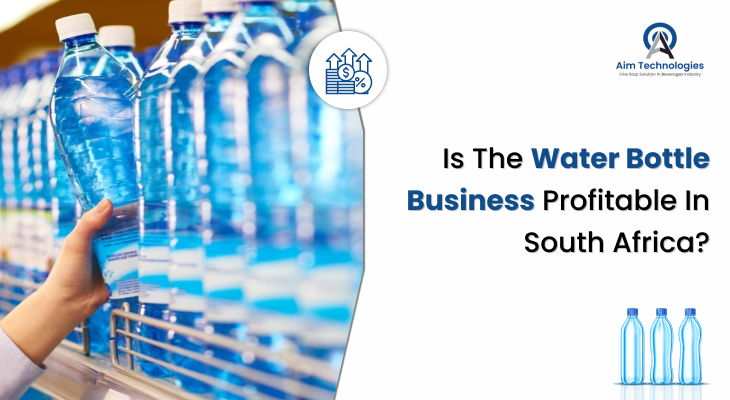
The bottled water industry in South Africa has grown in response to urbanization, health consciousness and questions regarding tap water quality. But is launching a water bottle business a viable investment? The business attracts many entrepreneurs, but first, one has to understand the market landscape, startup costs and profitability factors.
This guide explains how to start a South African bottled water business—from markets to operating expenses to making a profit.
South Africa's bottled water market is expanding rapidly. Analysts project that the industry is going to be worth $ 7.95 billion in 2030 at a 6.4% CAGR market analysis Grand View Research. This surge is owing to changing consumer preferences, health issues and convenience factors.
Sparkling Water:
Gaining ground as a soft drink substitute.Premium Bottled Water:
Aimed at high-income consumers who will pay for purity, mineral content & exclusive branding.Key takeaway: South Africa's bottled water market is thriving, but competition is stiff. Success depends on strategic positioning, pricing and, most importantly, product differentiation.
Also read, Growth of the Mineral Water Plant Industry in Africa: Opportunities And Challenges
To launch a water bottle business, substantial capital is needed, particularly if one aspires towards large-scale production. The key investments:

To legally operate a bottled water business, you must comply with the South African Bureau of Standards (SABS) and SANBWA (South African National Bottled Water Association) regulations. SANBWA Standard
Typical compliance costs include:
Get more info on: Startup Cost
Once the plant is running, the water bottle business's monthly costs add up.
Also read, How to Start a Mineral Water Plant with Essential Low-Cost Machinery
Differentiation is essential when numerous brands compete for shelf space.
Keeping expenses low is key to long-term profitability.
The water bottle business can be very profitable in South Africa. Entrepreneurs have to invest in infrastructure, follow regulations and price it competitively because consumers demand more purified water every day. Above the initial investment, profitability depends on cost-control branding and distribution efficiency. The right partners can make these operations possible and smooth an entry into this competitive market.
With experience in water purification plants, bottling machines and automated packaging solutions, Aim Technologies supports businesses of all sizes in the water bottle business. Our advanced filling machines & labeling equipment, as well as turnkey bottling setups, allow businesses to cut costs and meet regulatory standards easily. Get started with bottled water from Aim Technologies today!
1. How to start a water bottle manufacturing plant?
If you're wondering how to start a water bottling plant in South Africa, the first step is obtaining the necessary permits from health authorities and ensuring compliance with SANBWA (South African National Bottled Water Association) and SABS (South African Bureau of Standards) regulations.
2. What equipment is needed to start a water bottle manufacturing plant?
Core components are water purification systems, blow moulding machines for bottle production, automated filling and capping machines, labeling, and shrink-wrapping equipment.
3. How profitable is the water bottle business, and what factors influence success?
Managing expenses through bulk raw material sourcing, energy-efficient machinery, and streamlined logistics can improve margins. Market positioning by offering premium mineral water, sustainable packaging, or private label production for businesses can differentiate your brand, too. Long-term profitability also rests on contracts with supermarkets, convenience stores and hospitality businesses, which must maintain demand and business growth.
Subscribe To Our Newsletter to get the latest news, updated and amazing offers delivered directly in your inbox.